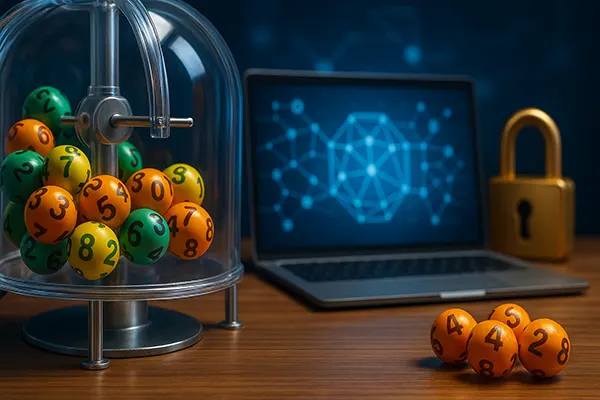In recent years, lotteries have started to evolve from traditional paper-based draws to fully digital systems. However, the key concern for players remains the same: fairness and transparency. The integration of blockchain technology offers a transformative approach to ensuring that every draw is verifiable, tamper-proof, and open to public audit. In 2025, blockchain stands as the backbone of a new era in lottery integrity and trust.
The Role of Blockchain in Modern Lotteries
Blockchain operates as a decentralised digital ledger that records every transaction across multiple computers. In the context of lotteries, this means that each ticket purchase, random draw, and prize distribution can be permanently stored and verified by anyone. This removes the need for centralised intermediaries, reducing the risk of manipulation or data alteration.
Traditional lotteries rely on central systems operated by government or private entities, which may raise doubts about fairness. Blockchain eliminates this dependency, offering an open and verifiable record of every draw. Players no longer have to rely on blind trust in operators but can instead validate outcomes themselves through transparent public ledgers.
Moreover, smart contracts—self-executing programmes within blockchain networks—automate processes such as prize payments and winner validation. This ensures that payouts are immediate, fair, and independent of human intervention, reducing administrative costs and errors.
How Decentralisation Enhances Player Trust
Decentralisation lies at the heart of blockchain’s appeal. Instead of one authority controlling the game, thousands of independent nodes verify the fairness of the results. This collective verification prevents fraud and strengthens public confidence in the lottery system.
In addition, decentralised networks allow full transparency without compromising security. Players can check transaction histories while their personal data remains protected through cryptographic methods. This balance between openness and privacy builds a new standard of integrity in the lottery industry.
By 2025, several blockchain-based lottery platforms have implemented hybrid decentralisation models. These combine private and public blockchains to balance accessibility, security, and regulatory compliance, making transparency achievable on a global scale.
Ensuring Fairness Through Smart Contracts
Smart contracts redefine how fairness is achieved in lotteries. They automatically execute pre-defined rules, ensuring that no external party can interfere with the process. Once the winning numbers are drawn, the contract immediately transfers the prize to the verified wallet of the winner.
Such automation eliminates traditional disputes related to delayed payments or unclaimed winnings. Every condition of participation is written into the contract’s code, visible to all, and impossible to alter once deployed. This creates a new benchmark for fairness and accountability in gaming operations.
Regulators and auditors also benefit from this model. Since all operations are recorded on-chain, oversight becomes more efficient. Auditing bodies can verify fairness using real-time data instead of relying on internal reports or third-party confirmations.
Security and Data Integrity in Blockchain Lotteries
Data integrity is one of the most valuable advantages of blockchain. Each transaction block is cryptographically linked to the previous one, forming an unbreakable chain of records. Any attempt to modify data would immediately be detected by the system’s validators.
This level of security prevents fraudulent behaviour, ticket duplication, or result manipulation. For lottery organisers, it also means lower operational risks and a more sustainable reputation built on verifiable fairness.
Furthermore, with advancements in post-quantum encryption expected by 2025, blockchain networks are becoming even more resistant to cyber threats. These technologies strengthen confidence among users, regulators, and investors alike.

The Future of Transparency and Global Adoption
The adoption of blockchain in lotteries extends beyond technology—it reshapes public perception of gambling itself. Transparent mechanisms promote responsible participation and demonstrate that fair play can coexist with entertainment and innovation.
Countries across Europe and Asia have begun integrating blockchain verification systems into state lotteries. These initiatives aim to increase consumer confidence while maintaining compliance with existing gaming regulations. By 2025, blockchain auditing tools are expected to become a legal requirement in several jurisdictions.
As public awareness grows, demand for transparent and ethical lotteries will continue to rise. Blockchain ensures that this demand is met with verifiable fairness, immutable records, and a decentralised structure that redefines trust in the lottery sector.
Challenges and the Road Ahead
Despite its benefits, blockchain-based lotteries face several challenges, including regulatory uncertainty and technical complexity. Governments must develop clear frameworks that recognise blockchain’s validity while preventing misuse.
Additionally, the cost of implementing decentralised infrastructure remains high for small-scale operators. However, technological innovation and open-source collaboration are gradually lowering these barriers, making blockchain lotteries more accessible.
The future will likely see a hybrid landscape where traditional and blockchain systems coexist, gradually merging into a transparent global network. As technology matures, blockchain is set to become the standard of trust, fairness, and openness in all forms of lottery gaming.